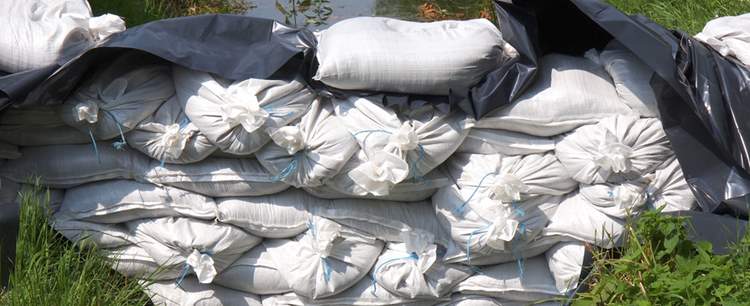Every year, parts of the UK are hit by floods.Every year, many people are caught out by this annual event as they’ve entered winter relatively unprepared for such a possibility. This is regrettable because sometimes being prepared could help you to mitigate some of the worst potential effects of flooding.
We have blogged on this before and offered some tips but we make no apologies for updating and revisiting this advice again given the time of year!
Why floods happen
Flooding occurs for one of a relatively few generic reasons:
- high seas wash in overland. Usually only a risk in coastal areas of course but as much of the UK is low-lying (e.g. East Anglia) the results can be devastating;
- rivers, reservoirs, drains and runoffs cannot cope with the volume of rainfall and so burst their banks or overflow;
- rain-sodden ground cannot absorb any more water, so it forms short-term rivers and lakes.
Some scientists argue that our weather patterns are changing and flooding is becoming ever more likely in the UK. That’s due to the increasing tendency towards very stormy and rainy weather during winter and spring, with much of it sweeping in from the Atlantic.
Severe floods in the UK are far from a new event. Even so, our greater population and habitation densities today make their effects potentially far more widespread.
What you can do
There’s nothing any of us as individuals can do to influence the weather.
What we can do though is to anticipate the possibilities of flooding and prepare accordingly. Here are a few tips to help you do so:
- research your local area. If flooding has occurred there previously then it may be far more of a risk than in areas where it is unknown;
- listen carefully to weather forecasts for your area and flood warnings. Genuinely unexpected ‘flash floods’ are comparatively unusual and in many cases, warnings are given in advance allowing you at least some time to prepare;
- if you’re in a high-risk area, think about moving your most valuable possessions into upper-floor rooms if bad weather is forecast. That should definitely include things such as important paperwork, jewellery, cards and mobile phones;
- double-check that your property and contents insurance covers flood risk – and before an alert is declared! If you’re in doubt, please discuss this area with us;
- make sure you have several good torches in the house and that their batteries are fully functional;
- put warm clothing, blankets, duvets and other such items, upstairs where they may come in handy to keep you warm. Remember that electricity is often lost in severe flooding;
- keeping some high-energy food and plenty of drink upstairs is also a good idea. Do not consume alcohol if you’re sheltering from flood water, as it impairs judgement;
- If possible, have some waterproof boots/waders and jackets in the house. Even if you don’t have them for all family members, have a good set for someone who could then go for emergency help if it was required and it was safe to do so;
- shut off your electricity and gas supplies. Electric currents and water don’t go well together. Gas pilot lights can be put out in severe flooding and escaping gas, even in small quantities, is a problem you’ll want to avoid given the flood underway;
- keep a battery-powered radio handy upstairs. Listen to it regularly for news updates and advice from the authorities;
- take local authority advice on sandbags and use them if you can. Remember to somehow try and block off low-set external vents to prevent the ingress of water – but remove all obstacles and check for a healthy airflow before re-lighting any central heating;
- be sure your gutters and drains around the house are clear. Sometimes a relatively minor flood can be made worse because a property’s drains are blocked with winter debris;
- don’t set off in dinghies, canoes or other boats of your own, unless instructed to do so by the police or emergency services;
keep supplies of any regularly required medications upstairs. Having a good first-aid box around would also be sensible.






